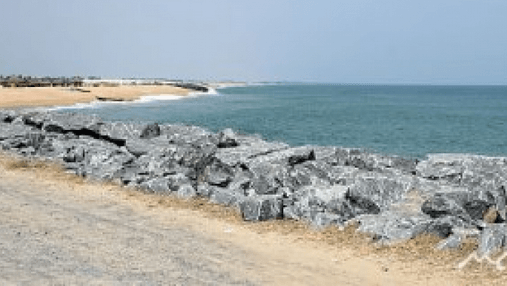Tourism Ministry urges Assemblies to prioritize beach development
 The Ministry of Tourism, Arts and Culture has advised Metropolitan Municipal and District Assemblies (MMDAs) to make coastline development their topmost priority.
The Ministry of Tourism, Arts and Culture has advised Metropolitan Municipal and District Assemblies (MMDAs) to make coastline development their topmost priority.
Mr Gabriel Tandoh, Deputy Director of Policy Planning, Budgeting, Monitoring and Evaluation at the Ministry said this at the end of a five-day stakeholder’s workshop on “integrated coastal zone management” at Anomabo in the Central region.
According to him, effective development of the coastlines was one of the surest ways to rake-in enough revenue to speed up development in their localities.
“The local Assemblies must learn from the best practices around the world to generate revenue and streamline their existing revenue mobilisation strategies to ensure their continued effectiveness.”
The workshop offered participants the opportunity to visit many coastal communities in the Central region to have first-hand information and practical experience to inform policy makers on the strength, weaknesses, opportunities and threats to the development of Ghana’s beaches.
It was organised by the Centre for Coastal Management (CCM) of the Department of Fisheries and Aquatic Sciences of the University of Cape Coast (UCC) and funded by the United States Agency for International Development (USAID).
It brought together participants drawn from the Ministries, Department and Agencies (MDAs) including the Ministry of Works and Housing, the Ministry of Gender, Children and Social Protection.
The rest were the Ministry of Fisheries and Aquaculture Development, the Ministry of Tourism, Creative Arts and Culture, the Ministry of Local Government, the National Development Planning Commission, the Fisheries Commission and a host of Non-Governmental Organisations (NGOs).
Mr Tandoh expressed dissatisfaction about the open defecation at various beaches adding that “it is very sickening to see people dump waste in open drains and waterways without thinking about the consequences.”
The tourism expert bemoaned the current state of the country’s beaches and said it undermined the Ministry’s efforts to make Ghana the most preferred tourism destination in the West Africa.
Mr Tandoh asked various district Assemblies to make funds available to their respective health inspection directorates to undertake proper supervision of the beaches in their jurisdiction to ensure environmental cleanliness at all times.
The Assemblies, he said must also embark on massive public education programmes to sensitise the people to maintain clean environment to promote eco-tourism and prevent the outbreak of preventable diseases such as cholera, malaria among others.
Mr Frank Kofi Dei, Director of Works, Ministry of Works and Housing called for support and cooperation between traditional authorities and district Assemblies to end the environmental impunity along the coast.
“There is the need for a strong collaboration between traditional authorities and Assemblies to enact and enforce the bye-laws to stop unscrupulous persons from destroying and exploiting the beaches for their selfish interest”, he said.
Many of the rivers, lagoons and lakes along Ghana’s coastlines, he noted had been polluted with human excreta, chemical waste and industrial waste of many substances, making it dangerous for aquatic and human survival.
Source: GNA
